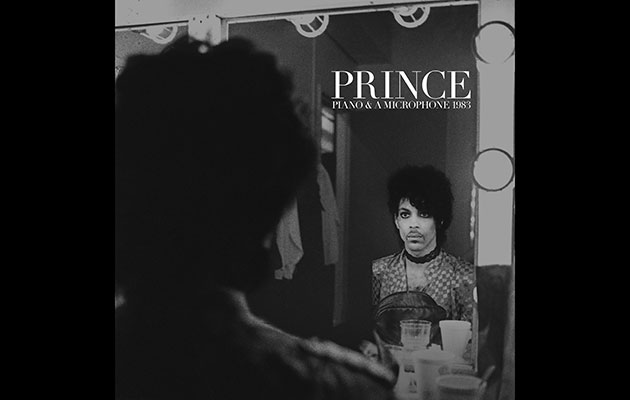For this week's archive feature, here's part of our Prince cover story from August 2018 - this time digging deep into his posthumous album, Piano & A Microphone 1983. Order the latest issue of Uncut online and have it sent to your home! Announced on what would have been Prince’s sixtieth bir...
For this week’s archive feature, here’s part of our Prince cover story from August 2018 – this time digging deep into his posthumous album, Piano & A Microphone 1983.
Order the latest issue of Uncut online and have it sent to your home!
Announced on what would have been Prince’s sixtieth birthday, Piano & A Microphone 1983 is a unique, intimate portrait of an artist in full flood. Taped in January 1983 at his Kiowa Trail home studio, it’s a remarkable 35-minute window into Prince’s creative process, featuring nine songs performed alone at his Yamaha acoustic piano: some classics, some covers, some in the throes of being written, some unheard until now.
“Can you turn the lights down a little?” he asks engineer Don Batts at the start, before launching into an astonishing seven-song medley, recorded in a single take. On “17 Days”, he pumps out the beat on his piano pedal, before transitioning into a verse and a chorus of an embryonic “Purple Rain” and a beautiful version of Joni Mitchell’s “A Case Of You”.
There’s a full-blooded gospel take on “Mary Don’t You Weep”, a nineteenth-century spiritual which occasionally popped up in his live set, and an early attempt at “Strange Relationship” in which he struggles to negotiate the transition between verse and chorus. The song finally found a home on Sign O’ The Times. After a raw “International Lover” comes “Wednesday”. Written for protégé Jill Jones and briefly in the running for Purple Rain, it’s sung by Prince in an unfamiliar style, unadorned and oddly innocent. The album ends with two unreleased tracks, the funky “Cold Coffee And Cocaine” and “Why The Butterflies”.
Piano & Microphone 1983 is both an invaluable historical artefact, and an outstanding work in its own right. Though at times Prince is clearly feeling his way into these songs, there are no stops and no mistakes. There’s nothing tentative about it. We hear him road-testing arrangements, scatting rhythmic ideas and guitar parts, playing brilliantly fluid piano and flipping through his full repertoire of vocal styles. These working methods were typical, says his engineer, Susan Rogers. “He didn’t demo songs. If he had an idea he would go straight to the piano – sometimes the guitar, but mostly the piano – and record.”
Discovered while tapes were being moved from Paisley Park, Piano & Microphone 1983 is the first in what promises to be a tantalising series of releases from Prince’s infamous Vault. This is where the legacy industry is heading, transitioning from deluxe expanded editions of classic albums, fleshed out with demos, alternate takes and live cuts, towards entire ‘lost’ works conceived as discrete entities. Recent examples include David Bowie’s The Gouster, an early sketch for Young Americans, and Neil Young’s 1976 album Hitchhiker.
Prince’s catalogue is particularly ripe for this kind of exploitation (he even did it himself, famously shelving and then issuing The Black Album). His modus operandi was such that – whether in the studio, at rehearsal, or on stage – he could record everything to a high standard of audio felicity. The Vault is bursting with material, much of it dating from his imperial 80s. Matt Fink says there are “two or three albums worth of Revolution material which really need to be finished or embellished upon. Those are sitting in there, among all the other material that has accumulated over the years.”
Eric Leeds recalls conversations in early 1986, during rehearsals for the Parade tour, concerning a possible Broadway musical. “He had four or five tracks that we recorded that would ostensibly have been for [that] idea,” says Leeds. “To what degree the idea was even fleshed out in his own mind, God only knows, but he had four or five songs we were working on. ‘Maybe next year we’ll put together a stage musical and go to Broadway.’ Why the hell not!”
The post-Revolution era was perhaps even more productive. Among other conceptually unified projects that could potentially see the light of day are the New Year’s Eve 1987/88 session with Miles Davis, and the albums laid aside in favour of Sign O’ The Times: Crystal Ball, Dream Factory and Camille. There’s also a stack of material recorded with the New Power Generation and 3RDEYEGIRL. Prince was dazzlingly productive while he was alive. In death, he’s destined to be even more so.
“I met him in 1977, and he was writing at least two songs a day since then,” says Bobby Z. “Do the math. People ask me what’s in the vault and I give them that equation! Two songs, times 365, times [39]. They’re going to have stuff to put out when you and I are long gone.”



